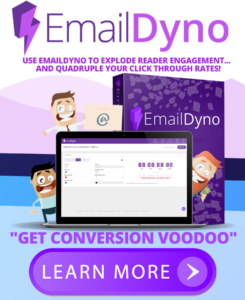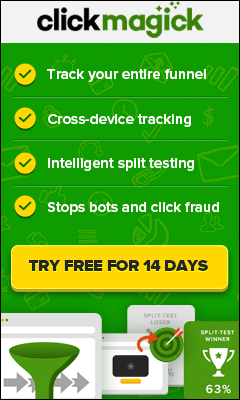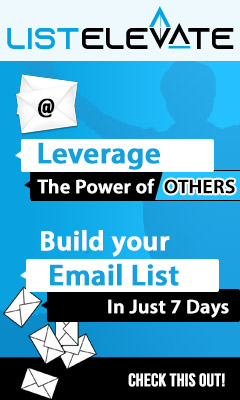In this article we are talking about Authority Marketing and how to sell more of anything as an expert in your niche.
One of the best things you can do to position yourself at the top of your market is to learn as much as possible about your competition, as well as what's selling in your niche and what your customer base wants most from you.
How do you do this? Read & research, of course!
Start by reading the top three to five best-selling books within your market.
Top selling books are one of the easiest ways to not only see how someone is presenting information to your audience, but what might be missing that you could include in your own products or services.
Analyze every component of their campaigns, launches and how they've positioned their product.
In addition, focus on studying the following:
- What style of writing (as well as writing voice) are they using? This will help you determine what resonates with that particular audience.
- What formats are they offering? (books, video, etc.)
- How are they marketing this book so well that it’s a best-seller?
- How are they connecting with their audience? What social media platforms are they on?
- What solution are they offering?
- What is their USP? How are they standing out from the crowd?
- How could you expand on, or improve with your own product?
Also, when using Amazon as a platform for researching potential niches, make sure that you keep a look out for the actual best-sellers ranking as this will help you quickly identify the most popular books in any given genre or niche.
You'll find this by scrolling down until you see the Product Details section. This is where you typically find things like the book size, page count, etc.
In that section, you'll find a section indicating Best Sellers Rank (BSR) which will help you pinpoint just how well the product is ranking.
Go to the Best Selling Products page and click on the broad category you’d like to check (in this case, Books).
Then, just start searching sub-genres until you get to the specific category you’re interested in. It will take a bit of work, but you’ll be able to create a snapshot of the top-selling books written by authorities in your market, which will ultimately help you figure out what is selling and what your next move should be. 🙂
You can also do a Google search for “best-selling books X” where X is the specific niche you’re after.
You do want to be very specific here. After all, there are likely literally thousands of books that have been written on your chosen topic or niche. You want to narrow down so you can focus only on the bestsellers.
You don’t have to limit yourself to just three to five books either, but if you're short on time you should at least try to review the top 3-4 in your market.
Once you’ve finished reading, look up those experts and start networking. Follow their posts and social media platforms.
Start commenting and linking back to their material. If you work towards getting on their radar, you'll open yourself up to many networking opportunities, so begin by building your presence and always keep a look out for ways to get their attention.
Next we’ll talk about narrowing your topic down until you’ve got the best one for your area of expertise.
Narrowing Your Focus
During your book search, you likely noticed that there are literally millions of books out there in your field.
Daunting, isn’t it?
It would be – if you were planning on choosing that broad a topic to build your authority in.
The fact is, you should never aim for a broad niche. When it comes to positioning yourself as an authority in your market, you want to become the go-to person for a specific topic, or section of the market.
Then later, you can expand.
That way you're not only able to locate your customer base, you'll have a clear focus and a solid action plan. Instead of trying to be everywhere at once, you'll also be able to narrow down the places that you can best connect to your audience.
Let’s go with some examples so you can see how this process works.
First, pick a fairly broad topic. Let’s say “podcasting.”
Now, you want to start narrowing that topic down, whittling away at it bit by bit until you hit something specific enough to work with.
“Podcasting” will get you those millions of hits, so let’s narrow down to “What do you need to get started in podcasting?”
That’s still going to get a ton of hits, so let’s try “What equipment do you need to get started in podcasting?”
Wow … still quite a few out there. Let’s get really specific and go with “What is the best microphone for podcasting?”
That’s something really specific – and you can create a series of pillar content based on different components of starting a successful podcast such as different brands, prices, components and picture quality. Then expand your content or course to include how to launch a podcast, marketing strategies and so on.
You could also interview experts and other podcasters to see what they recommend (which will also put you on the radar of authorities in the podcasting niche!).
You can see we’ve gotten really specific with our niche topic.
That’s a pretty extensive and popular topic, and that’s the sort of thing you need to aim for. You want to find a niche that is evergreen and also a niche that you can go deeper into. So, instead of cornering yourself in a market or niche where there are limited topics to discuss, venture into markets where there is a need for constant content that covers a wider variety of topics.
Make sense?
Next we’ll talk about seminars and how they can help you stand out from the crowd and position yourself as an authority quickly.
Easy Positioning Strategy
Creating webinars is a great way to introduce your brand and connect with your target audience. Everyone loves watching videos that help them solve a problem or better understand a topic.
Just the same, online seminars (or podcasts, live events, etc) will help attract people who are looking for quick and easy information.
Regardless of the format and platform you choose, when you're first starting out you'll want the majority of your webinar and other video content to be available at no cost.
This is the beginning of your funnel, where you'll be able to grow your list, connect with your audience and introduce your brand so the more people coming through that funnel, the better.
Later on, once you've established a foothold in your niche, you'll be able to create content that sits behind a paywall, or you can repurpose existing webinar content to sell a paid course, training, coaching or other product or service.
Every video, podcast, webinar or seminar you create is money in the bank. The content will become valuable, will help you build a content backlist that you can later extend and leverage in order to turn viewers into paid customers.
And they'll begin to recognize your brand as you offer more content that highlights what you bring to the table and how you can help them solve a specific problem in your market.
In addition, professional and civic associations are always looking for keynote speakers, and if you’re willing to work for little or nothing, they may jump at the chance to invite you into their community which could easily maximize your exposure and help you grow your business even faster.
Try to target your content to a specific audience. If you’re speaking on “The best microphone for podcasting,” for example, you might tailor that for a business audience into “The best microphone for dictation” or “The best microphone for virtual meetings.”
And don’t forget about other businesses or community groups who may not be so obvious (they could be incredible sources for free exposure!) such as: churches, senior centers, men’s and women’s clubs, garden clubs, single parents’ groups, and sports organizations.
Many of those would be happy to welcome you on board in order to provide their community with new information and helpful content.
If you’ve written a book in your market, you can add writing groups and book clubs to those potential networking groups. In addition, you could network with other authors in your niche by promoting one another's backlist of books or content.
Now start thinking about what video content, seminars, webinars or even live videos that you could easily create in order to maximize exposure and reach deeper into your market.
Using LinkedIn to Establish Credibility
LinkedIn is an easy, low-cost platform you can use not only to build credibility, but to attract your ideal clients.
Most people think of this platform as a job-seeking one, and that’s true, but it also gives you the chance to validate your skills and expertise within your ideal client base.
In order words, your LinkedIn profile provides valuable social proof: your resume, history and skills, all in one place.
First of all, you need a profile that stands out of the crowd.
Keep in mind that LinkedIn is a search engine. This means it provides you a great opportunity to be located and validated by new clients.
The key to this is Search Engine Optimization (SEO). You’ll need to research the keywords that are trending in your market so you can incorporate them into your profile.
Think about who you want to be found by, and determine which keywords they’ll likely use when searching for people in your market. Then build your content around those keywords.
Make sure you include a link to your website and mention guest posts and podcasts in your profile.
If you’ve written a book, provide training, courses or other valuable tools, certainly link to that.
List every “employment” opportunity you’ve had that applies to your existing niche, market or business – i.e. seminars, guest blogging or podcasting, videos, etc.
And be sure to include your skills and accomplishments. Fill out your profile as completely as possible and make sure it includes all those keywords.
Once you have a solid, well-rounded profile, start joining some groups on LinkedIn. Comment exactly like you do in other social media platforms to network with others and build that expert reputation.
Post some SEO articles and pillar content.
Curate information that your audience will consider valuable.
Share and promote any upcoming business and industry events.
Edit your summary and headline so they reflect your current plan and target audience. Share any awards and achievements you've received.
And always make sure to include examples of your work. Link to other online media where your audience can find you. Display any industry associations or certifications.
Everything you can think of to back up your claim to be an expert will go the distance in solidifying your position.
Once you’ve gotten yourself set up on LinkedIn, make sure it’s really easy for people to connect with you. Include a link to your profile on any social network or community you're active in.
Remember that you can also use LinkedIn to do some research on your potential clients as well. Do a bit of research and see what they’re looking for so you can tailor your information specifically for them.
Next we’ll talk about the importance of utilizing email campaigns and autoresponders within your marketing strategies in order to keep yourself in a solid position.
Email Your Way to Authority
Now let's talk email – specifically, growing an email list that helps you quickly maximize your exposure while keeping you connected to your core audience.
Adobe reports that email has a Return On Investment (ROI) of $40 for every $1 spent.
That beats every other type of ad you can purchase, along with organic search.
First of all, you need to define your audience. Hopefully, you’ve done some work in this area and you know what your target market is looking for and most interested in.
You need a clear purpose, so think about your overall goals and the end result.
What is the objective of your email campaigns?
Ultimately, it's to make the sale, yes, but initially your email campaigns should work towards introducing your company, highlighting your brand and USP and conditioning your readers to open your emails and respond to the content.
Your email campaigns shouldn't be structured to hard-sell early on. The point of a newsletter, whether it be weekly, monthly or just set up to occasionally broadcast, all need to focus on positioning yourself as an authority in your market.
This means that the more free, valuable content you provide, the easier it will be to persuade readers that you are the go-to person in your market: the person they need to help them solve their problems.
Regularly emailing your list and providing them with frequent updates and free content is one of the easiest ways to become a recognized leader in your market. You'll be able to connect with your audience in a more personal way. You'll have the opportunity to survey your audience in order to see what they are most interested in, what they need help with.
All of this goes the distance in helping you creating effective marketing campaigns as well as products and service launches that are guaranteed to be successful – because they are based on what your market has already indicated they are interested in.
Your next step is to choose a mailing list service. This account will house your email campaigns and your subscriber lists.
There are dozens of email service providers to choose from, including Active Campaign, CovertKit, GetResponse and aWeber.
Just research which service is best for you, sign up and create your first automated email. Set it up so that it goes out instantly whenever someone subscribes to your list.
Remember that the first email is an introductory one. It's designed to welcome your subscriber to your inner circle and give them a clear vision as to what's to come (why they should stay subscribed to your list and open your future emails).
Present your USP up front and centre. Kick off your email campaigns with a clear promise of what you have to offer and what your goals are.
You'll also want to create an incentive gift. This is featured on your squeeze or landing pages and helps to encourage visitors to subscribe to your mailing list in order to receive the free offer.
Make this the very best it can be! It should be original, useful and very targeted. If you plan to use private label content to create your incentive, make sure to edit and revise it enough to where it includes additional information. Put your own spin on it and make sure it highlights your brand identity.
Try to follow the 80/20 rule – 80 percent high-quality content and 20 percent advertising. That way, you won’t lose followers who get tired of being hit with offer after offer.
The goal is to keep them glued to your emails because they know how valuable they are. So offer as much useful content as possible upfront and you'll easily sell them on the backend. 🙂
Next, we’ll talk about trade organizations.
Networking Your Way To The Top
Remember your LinkedIn account? Use that to locate other experts in your field you can connect with!
You can follow them on various social media platforms or on their website/blog. Be sure you’re commenting with pertinent information and retweeting/sharing appropriately.
Also be sure you’re crediting them when you quote or paraphrase their work. Link back to their website or social media account and email them to let them know you’ve included them in any material that you're distributing to your audience.
Most of the time, they’ll reciprocate and retweet or share something you’ve posted as well.
Remember those best-selling books you may have researched in order to determine what your own content should be about?
You can easily network with other authors by joining their groups, sharing valuable content throughout reader-based communities. Search Facebook for relevant groups. It's a great way to stand out from the crowd because it allows you to share information to a very targeted audience.
If you are able to land a guest spot on an expert's blog or podcast, even better. Be sure to link back to your own website, blog, social media accounts, and video content. Create a bio that represents your brand and highlights your websites and use it everywhere you can.
Join two or three related trade organizations. These organizations offer you opportunities to network, take educational classes, and get up-to-date information in your area of expertise.
You can also check out the local scene by looking in a website like MeetUp to see if there are any live get-togethers planned in the near future.
You may be pleasantly surprised at how active some of these organizations are.
Attend national trade shows and conferences. These meetings give you the ultimate networking opportunity. You’re almost guaranteed to run into some of the top thinkers and leaders in your market at these events!
You can participate in training sessions and seminars – learn new things and get the chance to see how other experts are expanding their outreach and growing their audience.
Don’t overbook yourself with all this networking, though. The idea is to set yourself up as an expert, not to burn out trying to do everything at once.
Authority Mindset
We’ve been talking about ways to position yourself as an authority, but one of the most important things is maintaining a mindset of an expert.
What does that mean?
Changing the way you may think. Never second-guessing yourself.
Think:
You're worthy of a captive audience. You're capable of growing a successful business, and you have something valuable to share.
The key is to have faith in yourself and to understand that while it will take work to establish yourself as an authority in your market, it is worth the effort.
It's a long-game. Don't expect overnight results. At the same time, the goal is to keep consistent. Work at building your audience, take small steps every day to work on something that will ultimately move the needle.
It likely won't happen quickly and you'll need to invest the time and effort upfront in order to create a solid platform for your brand, but if you remain focused, you will be successful.
The authority mindset is all about seeing the bigger picture.
You'll spend time creating a plan of action and then break down those elements into smaller, manageable steps. You'll spend time identifying where your audience is and more importantly, who your audience is. That way you'll be able to create content, products or services that they desperately need.
You'll be a problem-solver. Your brand will become known as the go-to person in your niche because you can produce results.
You'll stay on track, only expanding and venturing into new territory once you've gained a strong foothold in your existing market.
And above all else, you won't give up.
Becoming an authority in ANY niche is possible, regardless of existing competition, but the truth is, behind every successful brand is consistency. They move along that path to success, one step at a time. They focus on always building, always creating and always growing.
Do that and you're golden.





